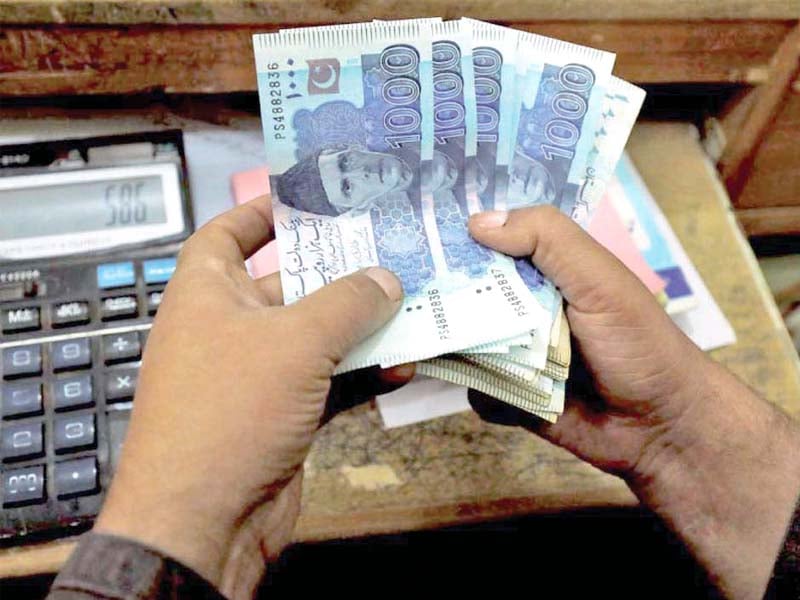ISLAMABAD:
The government has decided to make a massive increase in petroleum levy up to Rs90 per litre on the sale of oil products, which will be collected from consumers.
“The federal government, in exercise of powers conferred under Section 8 read with Section 3(1) of the Petroleum Products (Petroleum Levy) Ordinance, 1961, authorises the Petroleum and Finance Divisions to make adjustments – with the approval of the prime minister — in the rate of petroleum levy on petroleum products, up to a maximum of Rs90 per litre, to ensure timely fortnightly revisions in petroleum prices,” the Economic Coordination Committee (ECC) said in a recent meeting.
At present, the consumers are paying Rs78 per litre in petroleum levy on petrol and Rs77 per litre on diesel.
During previous decisions relating to revision in petroleum prices, the federal government had decided to redirect the collection of petroleum levy to subsidise electricity consumers and finance road and canal projects in Balochistan.
The decision was taken while discussing matters pertaining to sales tax on refineries and oil marketing companies (OMCs).
The Petroleum Division briefed the forum that petroleum products (Mogas, diesel, kerosene oil and light diesel oil) had been classified as “exempted” under the Finance Act 2024. As a result, the refineries and OMCs incurred the cost of input sales tax (Rs34 billion for financial year 2024-25), which could not be recovered through product prices, which are regulated and fixed by the Oil and Gas Regulatory Authority (Ogra).
A proposal to levy 3-5% sales tax on motor spirit (MS or petrol) and high-speed diesel (HSD) was developed in consultation with the oil industry, Finance Division and Federal Board of Revenue, but it could not be implemented due to the lack of agreement with the International Monetary Fund (IMF) on reducing the tax rate. It is worth noting that the standard general sales tax (GST) of 18% on MS and HSD will result in a price rise of around Rs45 per litre, which is not desirable. Any changes to the tax rate will require prior consultation with the IMF as well as approval of parliament.
Besides the sales tax issue, the OMCs and petroleum dealers requested an increase in their margins on MS and HSD. In that regard, Ogra recommended an increase of Rs1.13 and Rs1.40 per litre in margins of OMCs and dealers, respectively, to ensure the sustainability of oil supply chain. Ogra’s recommendations were reviewed and certain amendments were suggested in a summary.
To partially address the financial issues faced by refineries, OMCs and dealers, the Petroleum Division proposed that since petroleum products (Mogas, diesel, kerosene oil and LDO) were exempt from sales tax during the current financial year, the unadjusted sales tax of refineries and OMCs (estimated at Rs34 billion) from July 2024 to June 2025 may be compensated through the inland freight equalisation margin (IFEM). The amount may be recovered over 12 months.
It said that for FY26, a 3-5% sales tax on the above-mentioned fuel products may be imposed through the Finance Act. However, if the products remain exempt from sales tax, the unadjusted tax may again be compensated through the IFEM as a fallback option to keep the oil supply chain sustainable.
Ogra will develop a mechanism for adjusting GST claims and ensure effective utilisation of digitisation costs, along with implementation timelines, within one month of approval. The full cost of digitisation will be borne by the OMCs across the supply chain, including the retail outlets. The Petroleum Division briefed the ECC that based on those proposals the indicative impact on MS and HSD prices would be Rs1.87 per litre for sales tax adjustment. It was also proposed to increase margins for OMCs by Rs1.13 per litre and for dealers by Rs1.12 per litre.
The ECC considered a summary titled “Settlement of financial issues of refineries and OMCs” and agreed that the unadjusted FY25 sales tax of OMCs and refineries may be compensated from May 16, 2025 through the IFEM (which was estimated at Rs34 billion and would be verified by Ogra). The amount will be recovered until the end of FY26.
The proposal for the imposition of 3-5% GST on petroleum products shall be considered along with other tax-related proposals for inclusion in the upcoming Finance Bill.



